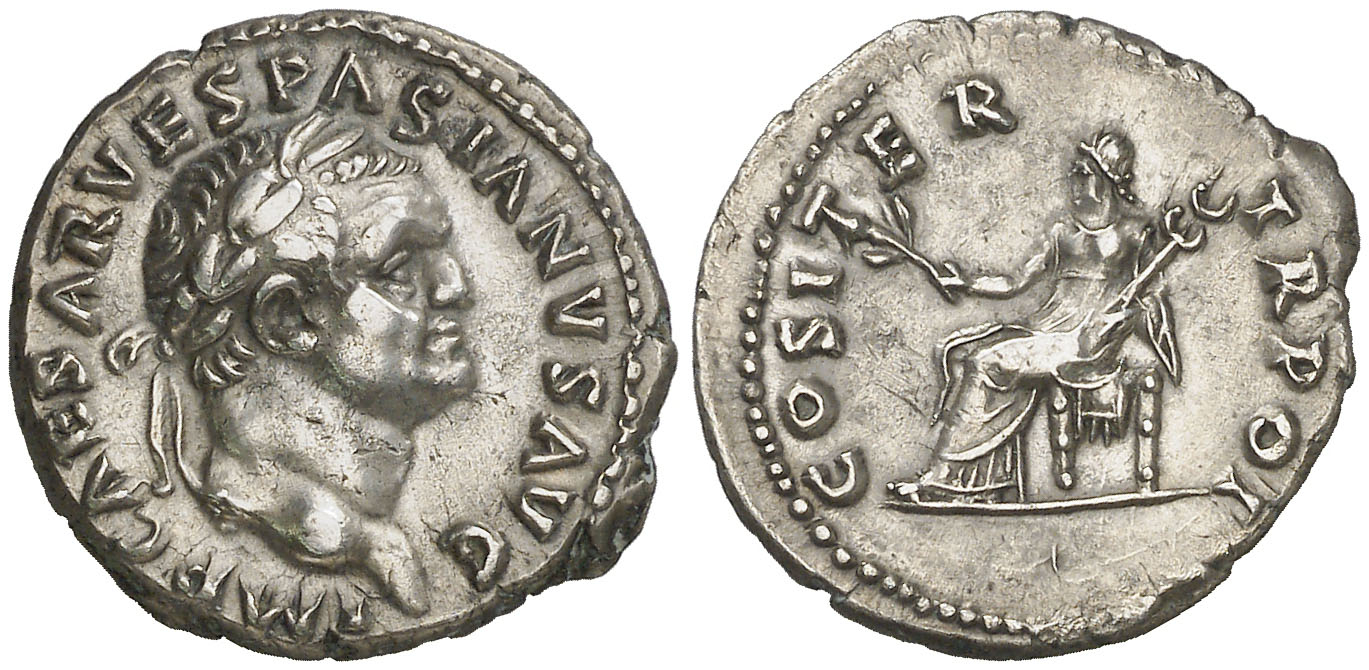Vespasian, denarius, 70 year
 Orient555
Posts: 29 ✭✭
Orient555
Posts: 29 ✭✭
Hallo!
I would be glad to hear the opinions of forum members on the authenticity of this coin.
Weight 3.33 grams.
RIC 29
Thanks in advance to all who answered!

0
Comments
Although I am not qualified to comment, and determining authenticity of an ancient coin from a photo must be next to impossible, here are a few observations to get the conversation going:
If it is fake, it is a very nicely made copy
If it is real, it is extraordinarily well centered, and the legends, especially on the obverse are very, very crisp and readable.
This type of coins are faked all over the place, they even use ancient silver from the original but very worn coins and the same techniques to strike them.
A natural follow up question—are the counterfeiters so adept that even the leading experts may not be able to give a definitive opinion?
That coin looks fine and has been around (sold by Aureo & Calico in 2013 and 2019).
There are disagreements on authenticity from time to time but I wouldn't say it's more prevalent than any other collectible/piece of art
Can't anyone really tell me if it's authentic?
Two things can be said with certainty:
(1) It's not "an obvious fake", of the kind that is easily apparent from an online photo
(2) Although the general type is found in the FORVM fake coins database, these specific dies are not. So if it is fake, is not an already-documented fake.
It's the sort of thing where you can't prove a negative. If it were an obvious fake (e.g. it failed either of the two tests I mentioned above) it would be simple and easy to definitively say "It's a fake". But this does not necessarily mean the opposite - "It's genuine" - is definitely true. It means that either (a) the coin is actually genuine, or (b) it's a really convincing, nicely made fake, not yet documented in the fakes databases. Which of those options is true is entirely based on probability. RIght now, for this coin, the odds seem to be stacked towards it being genuine, simply because it's not the sort of coin that tends to attract those skilled enough at making high-quality fakes - but that might be exactly what the fake-masters are hoping you will think, so you can never know for sure.
There's no such thing as "coins proven to be genuine", unless you can directly trace a coin's provenance from wherever it was dug up out of the ground (which, sadly, is almost never the case). The best you can ever say is "no-one has proven it to be fake yet".
There are ways of minimizing your chances of buying a fake - always buying from reputable dealers with lifetime moneyback guarantees, for example - but there's no way of reducing that probability to zero. Buy enough ancient coins, and you will almost certainly eventually buy a coin that has fooled you, no matter how good an expert you are. I have over 500 ancient coins in my collection; the probability that every single one of them is genuine is actually rather low.
Roman emperor Marcus Aurelius, "Meditations"
Apparently I have been awarded the DPOTD twice.
Sapyx, very thanks!